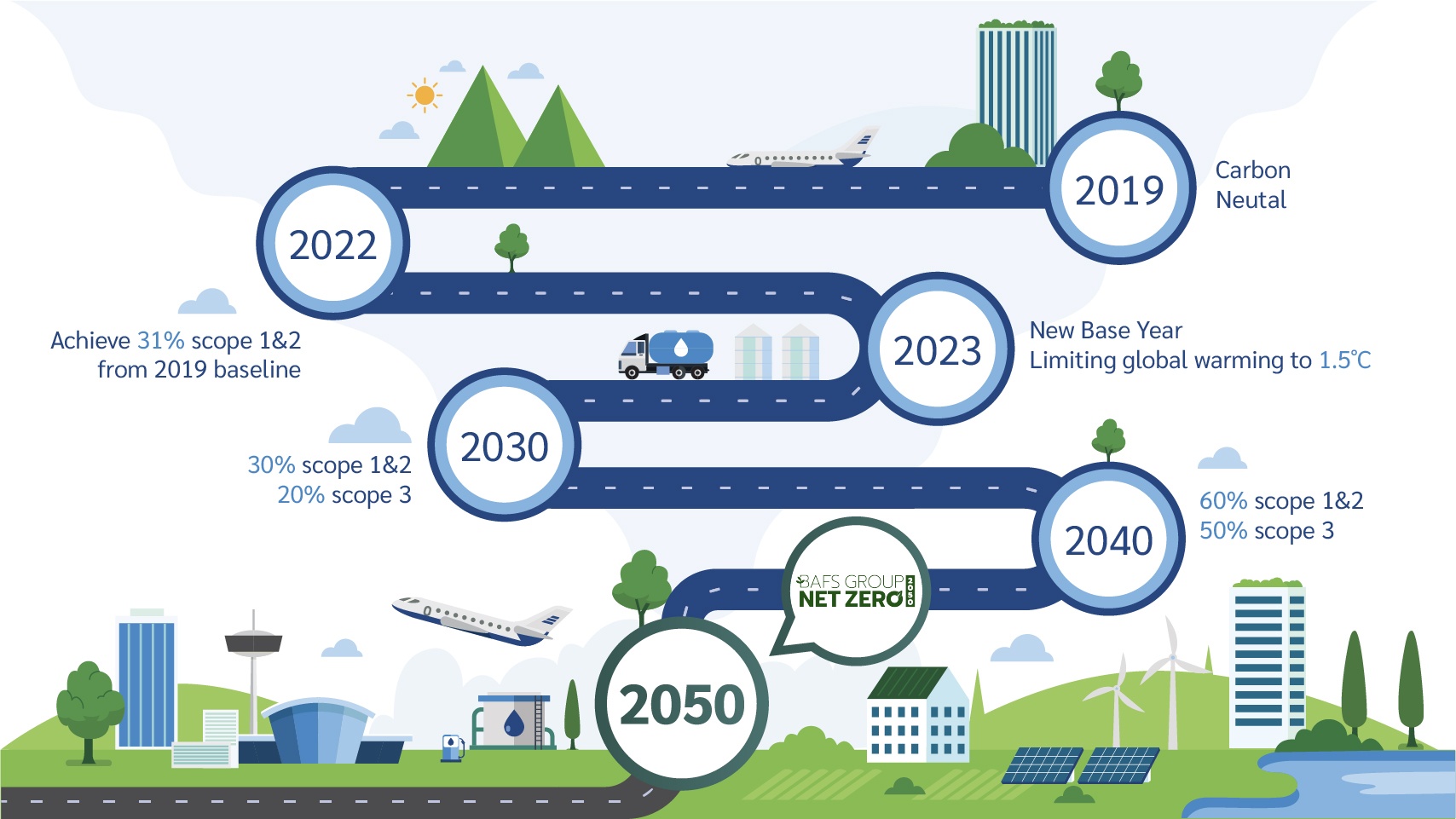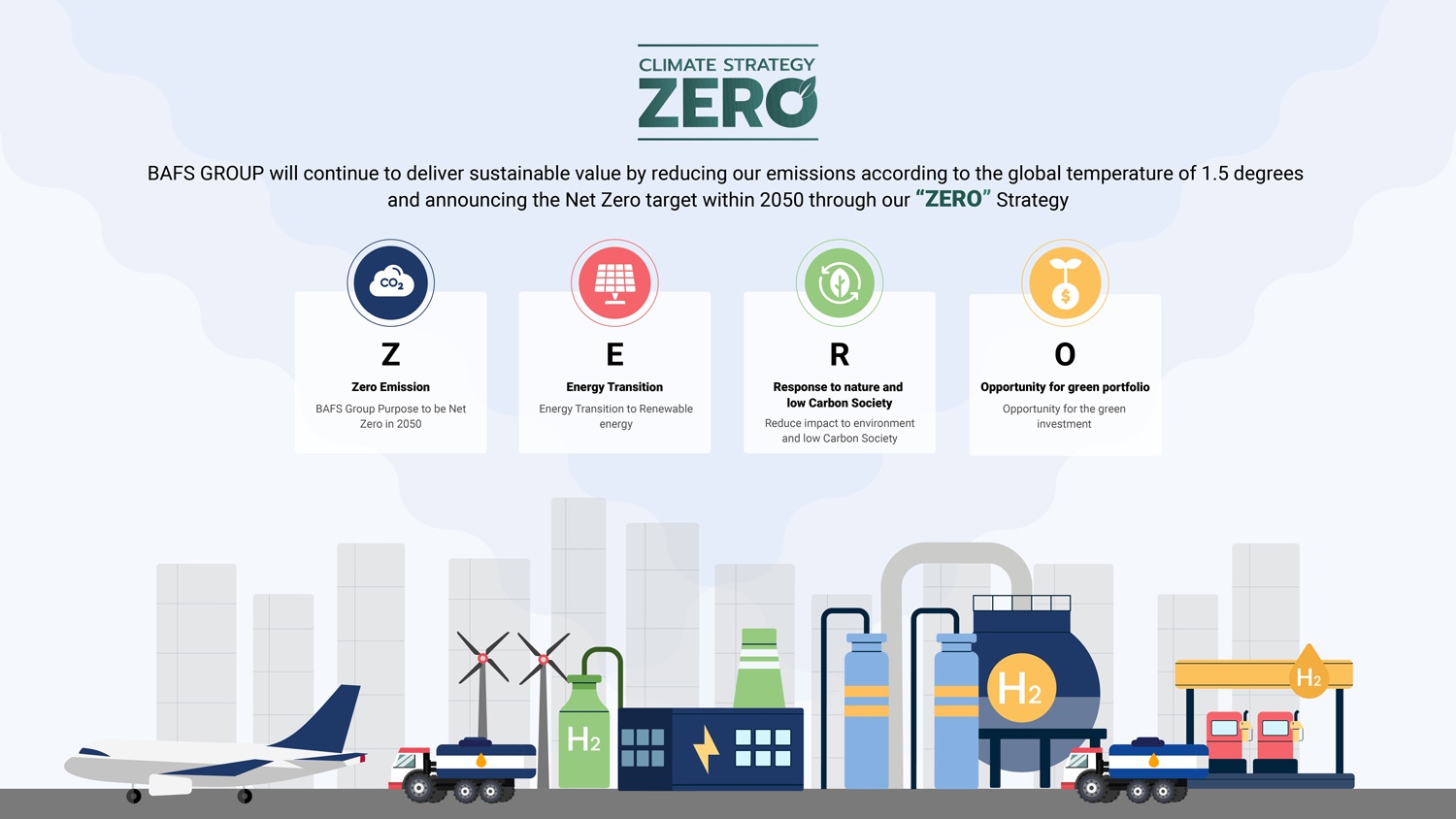Climate Change Management
Climate change has a severe impact on the environment and the quality of life in our society. The cooperation of the international community has been established to address climate change under the Paris Agreement. (The United Nations Framework Convention on Climate Change) including Thailand. This world agreement become an urgent agenda not only for the states but also for the private sector is needed to be corporate for keeping the global temperature not exceeding 1.5 and 2 degrees Celsius.

BAFS has set a medium-term emission reduction (2023-2030) by reducing greenhouse gas by 30% in Scope 1 and 2 and 20% Scope 3 by 2030 and Net Zero in 2050.
Corporate Carbon Footprint
The company has verified for Carbon Footprint for Organization by Carbon Label and Carbon Footprint for organization in 2024. And the information of the emission within the organization as the following
Grand Total of greenhouse gas emissions :
6,777
Ton Carbon Dioxide Equivalents
Compared to base year 2024:
*Measuring the reduction in greenhouse gas emissions specifically within 1st and 2nd boundary
1st Boundary :
Direct Combustion
2,172
Ton Carbon Dioxide Equivalents
Compared to base year, 2024
-
2nd Boundary :
Indirect Combustion
2,595
Ton Carbon Dioxide Equivalents
Compared to base year, 2024
-
3rd Boundary :
Other indirect Combustion
2,010
Ton Carbon Dioxide Equivalents
Compared to base year, 2024
-
Carbon Intensity
BAFS reports Carbon Intensity, which compare the ratio of the emission per volume of distributed fuel as the following
In 2024, Company has been set carbon intensity from the electrical consumption at Suvarnabhumi for both Aviation Fuel Storage service and In-to plane refueling station per volume of aviation fuel service which equal to
= 1.34
Ton Carbon dioxide equivalents per Million liters

